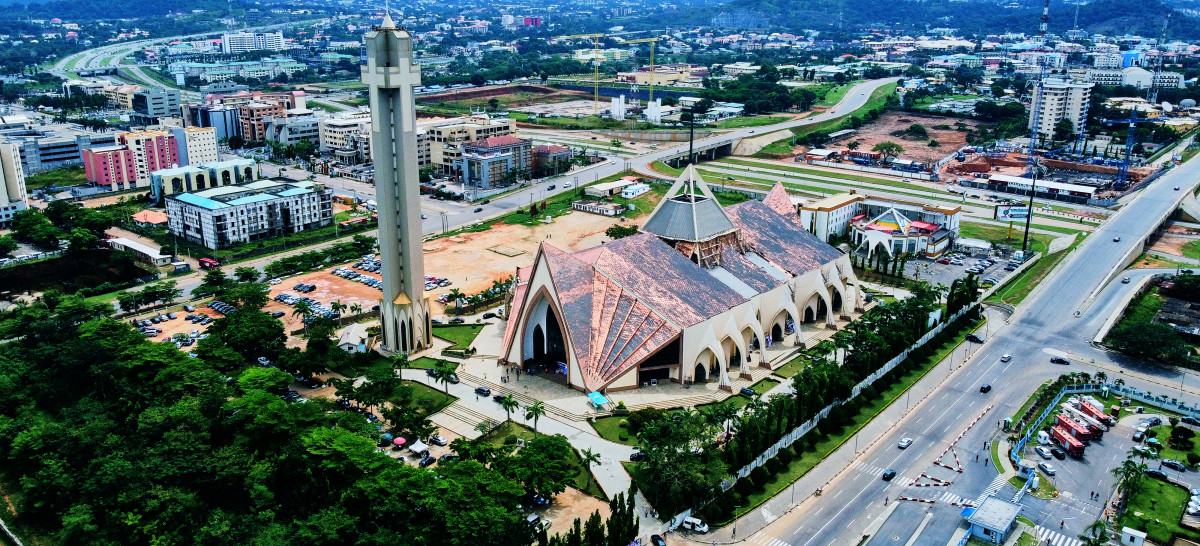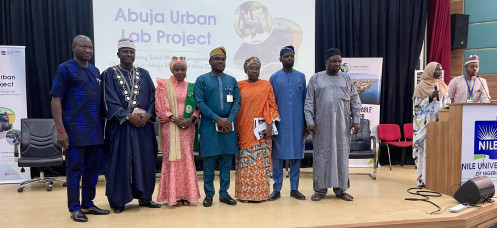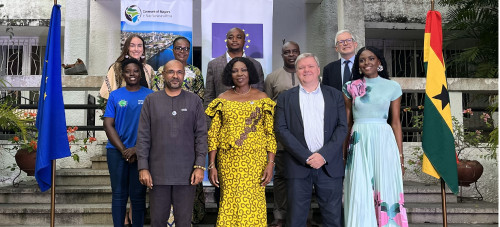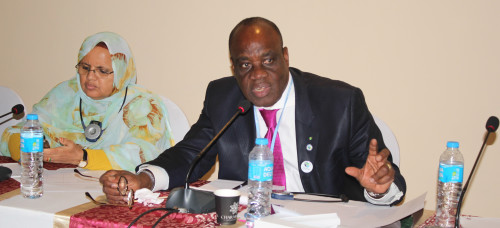Lessons learnt: How African cities are communicating their climate action plans to gather support for implementation
Published: 10 May 2022

A critical part of a city completing its Sustainable Energy Access and Climate Action Plan (SEACAP) is communicating its plans and actions to different audiences in order to raise awareness and gather support for action implementation
In a recent city-to-city exchange, CoM SSA signatories gathered to share best practices for communicating their SEACAPs to different audiences as the first step before implementation. The exchange brought together 11 cities from across Africa and aimed to create a space to discuss how they can communicate the content of their SEACAPs to different audiences to not only increase awareness of these plans by getting stakeholders’ attention but also to ensure buy-in for the actions included in the SEACAP and encourage each actor to play their part to take concrete steps forward.
Communicating the content of the SEACAP to high-level officials and decision-makers
How do you communicate the content of the SEACAP to a mayor or governor, who has the power to sign off actions for implementation but little time to read a 100+ page document? The city-to-city exchange explored what mayors and high-level officials need to know and the best ways to get this information through to them.
The city of Garoua II in Cameroon, which recently launched its SEACAP, highlighted that what decision-makers particularly need are the key figures emerging from the baseline studies because these show the gravity of the situation.
Similarly, Bobo-Dioulasso in Burkina Faso, which is yet to launch its SEACAP, noted that mayors need to know the targets that need to be set and the actions needed to guide the city’s progress in the right direction. The city also flagged that for those city representatives to take ownership of the SEACAP and know its actions, they need to be involved in its implementation.
So how are cities ensuring that their mayors get this information? It is a matter of building meaningful engagement with political representatives and, for that, cities are using a combination of different approaches.
For instance, the city of Accra in Ghana meets regularly with the mayor’s team to ensure that this information is passed on to the mayor. Cape Town uses briefing notes and slides to inform its mayor on the move; in addition, the city also focused on making the design of the climate action plan engaging and easy to understand so that key statistics pop out quickly.
The Western Cape province flagged that aligning big climate events like COP with the political messaging of a city’s climate action plan through the mayor can also help create more awareness.
Effective communication to citizens to encourage their participation in SEACAP implementation
For a SEACAP to be implemented effectively, it cannot simply be a top-down approach. Citizens need to be involved too, supporting SEACAP implementation from the bottom up. Therefore, the exchange discussed the kind of information citizens need to understand what part they can play and some of the practical resources that government officials could use to communicate this kind of information.
In the case of Accra, communication with citizens about the strategic plans of the city is legally mandated. Moreover, the city’s communication is packaged to fit the audience it is intended for using the language and jargon of its citizens. Similarly, the city of Moroni in Comoros communicates information about what citizens can do themselves and has a concrete impact on them.
Other participating cities at the exchange noted that an alternative way through which the critical information can be provided to citizens could be the training of focal points and embedding them in communities to communicate on issues that affect them, such as climate change. The city of Lusaka, for example, has ‘junior councillors’ – young people from schools who have been taught about climate change and the management of solid waste and who live in these local communities, where they are tasked with spreading awareness.
City-to-city exchanges are a core component of the Covenant of Mayors in Sub-Saharan Africa (CoM SSA), a European initiative co-funded by the European Union (EU), the German Federal Ministry for Economic Cooperation and Development (BMZ), and the Spanish Agency for International Development Cooperation (AECID). They encourage collaboration between signatories on climate action and sustainable energy access by promoting dialogue and facilitating sustainable cooperation.





